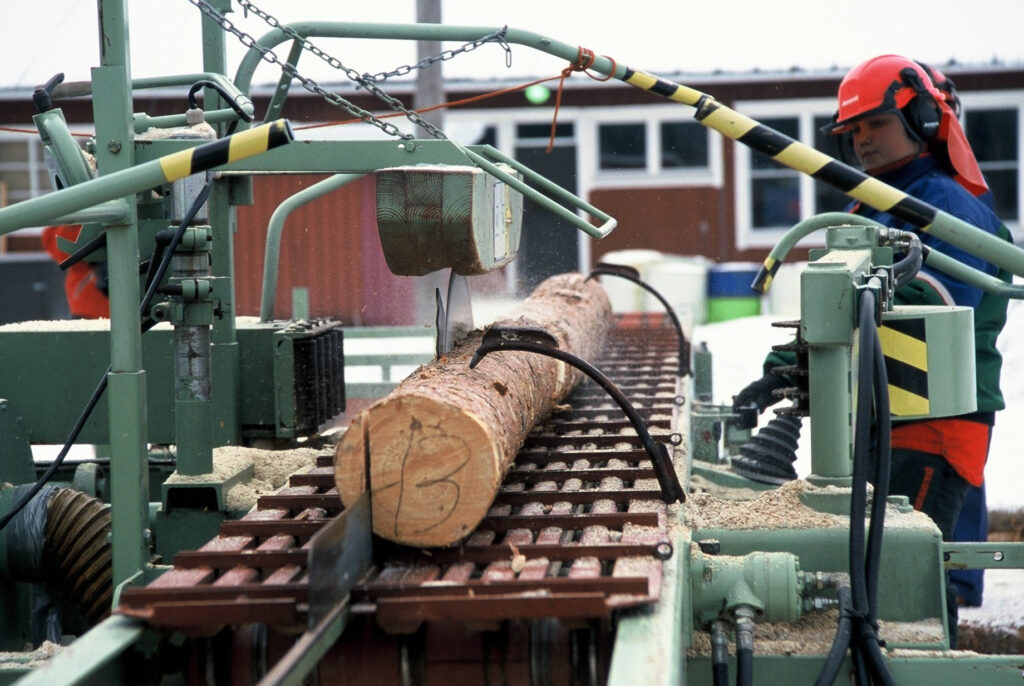Young people in forest sector believe in its future

Young people who have chosen to study or work in the forest sector feel significantly more positive about the sector and its future than other young Finns.
Only one in every three Finnish teenagers actively seeks information when choosing their field of study. They know practically nothing about the well-being at work, pay levels or job descriptions in the forest sector, reveals a study by 15/30 Research Oy, commissioned by the Finnish Forest Association and the Finnish Forest Industries Federation.
In Finland, the average age of young people choosing their future field of work is 19.7 years. They are often pressed for time and uncertain when making their choices.
“In such a situation, young people tend to opt for the ‘least wrong’ answer, which means they will avoid sectors about which they know either nothing or only negative things”, says Mikko Ampuja, Development Manager at 15/30 Research Oy.
Showing appreciation is important
Some of the reasons given by young people for choosing the forest sector were that they already knew about it through family members or relatives, they were interested in nature and the future of the world and forests. People outside the forest sector do not feel it allows as many contacts with other people as do those who have opted for it.
Those who had chosen some other sector were generally influenced in their choice by friends, wanted to live in the city and were interested in the future of humankind.
Good work climate, the opportunity to affect the content and organisation of one’s work and varied tasks are important to all young people.
Finnish school kids aged 13-14 generally spend one or two weeks in work practice each year. These weeks plus trainee periods and summer jobs are their first contacts with the working life and create an image of the sector where they are spent. This is the same stage in life when the teenagers’ identity and self-esteem are built and they find their own reference group.
Ampuja’s advice for organisations communicating with young people is to focus on well-being at work and good leadership. Young generations ask a lot of their dream job, especially in regard to well-being at work.
A dream job means interesting and challenging tasks, a nice work environment, pleasant and like-minded colleagues, a relaxed and supportive climate and flexibility from both the employer and employee. In addition, a dream job is financially secure – though not necessarily highly paid.
Receiving thanks and appreciation is important to the young. The problem is that routines, rather than varied tasks, tend to be at the forefront in first jobs.
Outdated images of sector persist
The study again highlighted a familiar issue: the image of the forest sector that ypung people not working or studying in it have can be described as historical.
They think that working in the forest sector means having to live in the country, and being surrounded by bearded paperworkers, forest workers and rural people. They think the sector is dying and all its jobs will be transferred abroad. People in other sectors think that the forest sector is only made up of big companies and that it does not offer jobs for creative people.
The young people who have chosen the sector are much more positive about it. They see it as a sunrise sector with great potential and regard all people in the sector, from forest workers to innovative researchers, as easy-going. They feel the sector would suit their friends, too.
On the other hand, half of the respondents outside the sector could not say whether the forest sector is a high-tech sector. 52 percent could not say whether the sector offers its employees an opportunity to develop their skills. 68 percent could not say anything about well-being at work in the sector and 54 percent could not say whether forest sector people could affect the content and organisation of their jobs.
This is even more worrying for the forest sector as matters of this kind are important to young people about to choose their careers.
Work with a meaning
People working in the forest sector have a much more positive and varied picture of it.
82 percent of the respondents from the forest sector said that the sector offers work with a meaning. The work involves both using your brain and closeness to nature. The work brings you into contact with people, and the sector uses high technology. 88 percent say that the sector offers varied career paths.
As young people’s images of the sector are vague and they tend to spend little effort in finding out about potential careers, Ampuja recommends that the forest sector should create compact stories or rules of thumb which teenagers could rely on when making their choices.
The sector should invest in giving a more varied picture of people working within it, so that young people could more easily identify with them.
“The young remember the bad stories from the media. This cannot be ignored if you want to come across as credible. Communication should include elements which admit that the sector is undergoing a renewal process and that this also involves negative things,” Ampuja says.
He says that the most common mistakes when talking with young people are being condescending or sending a message that is not credible. You can talk to young people as you would to adults, but their greater openness and willingness to experience things also allows a bolder approach, appealing both to their senses and sensibilities.
Kirjoita kommentti